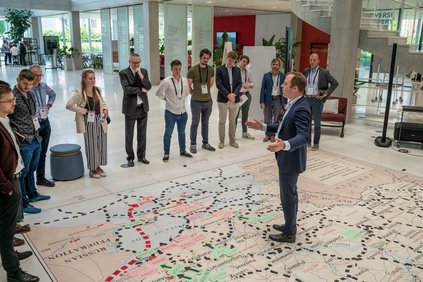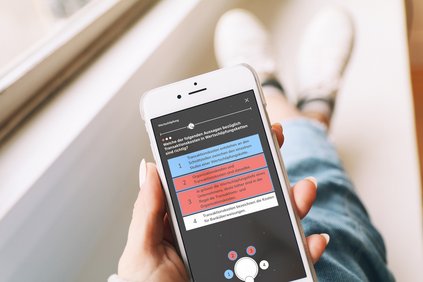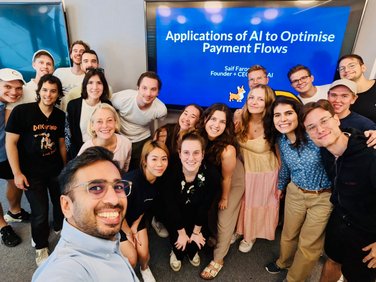Background - 19.09.2023 - 14:30
TEDxHSG: Ideas for exploring the future of learning
Have you ever wondered what classrooms will look like in a decade? At TEDxHSG 2023, a team of 14 passionate students brought together inspiring speakers from diverse disciplines such as entrepreneurship, academia, HR, education, and even mixed martial arts to drive impactful conversations, spread ideas, and spark curiosity. Nine talks centered around the topic “Mindscapes” took the audience on a journey to explore the future of learning. By student reporter Victoria Lorenzen.
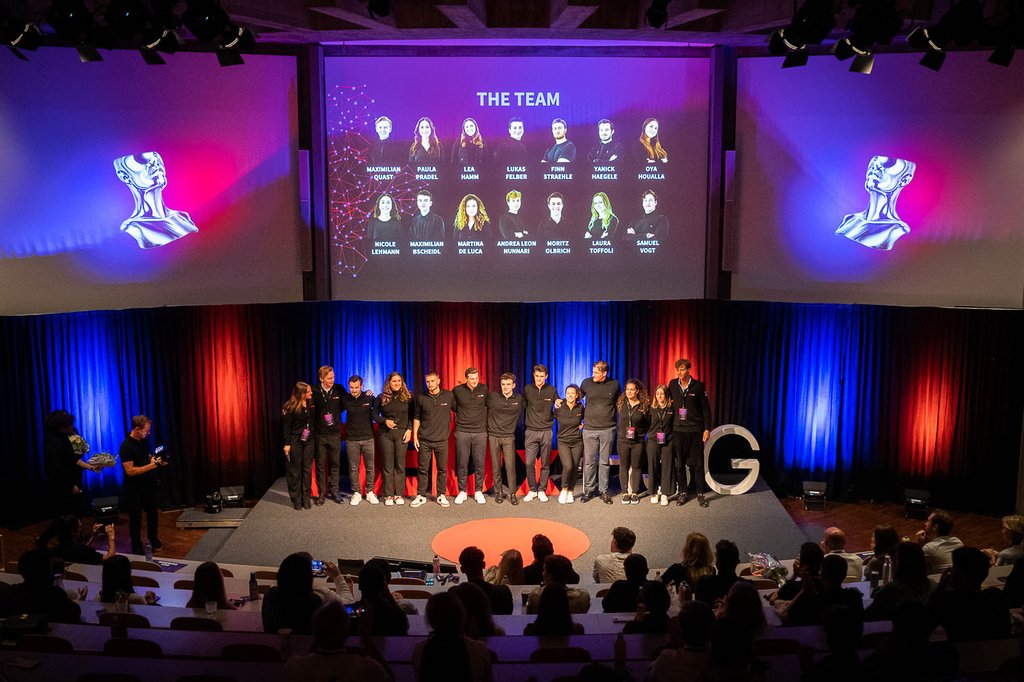
Higher education is one of the currently least digitized economic sectors that has undergone few disruptive changes historically compared to other industries. However, our education system is not only expecting technological changes but also a change in mindset.
Failure as a means of learning
If learning from mistakes is intuitively effective, can we use this effect intentionally for learning? Deepening students' learning experience through productive failure is Manu Kapur’s expertise. The Professor of Learning Sciences and Higher Education at ETH Zurich engages students in solving complex and novel problems that they have not yet encountered, leading to an initial inability to solve the problem correctly, resulting in failure. However, students then generate multiple solutions and explore these through subsequent instruction. This teaching style is inspired by real-life examples of productive failure, e.g., vaccines that prepare the immune system to effectively respond to real threats in a safe environment, and muscle fibers that break down from strength training and recover to grow stronger. Further, he encourages students not to be afraid of making mistakes because “you don't fail for the sake of failing, but because you are on the edge of exploration”.
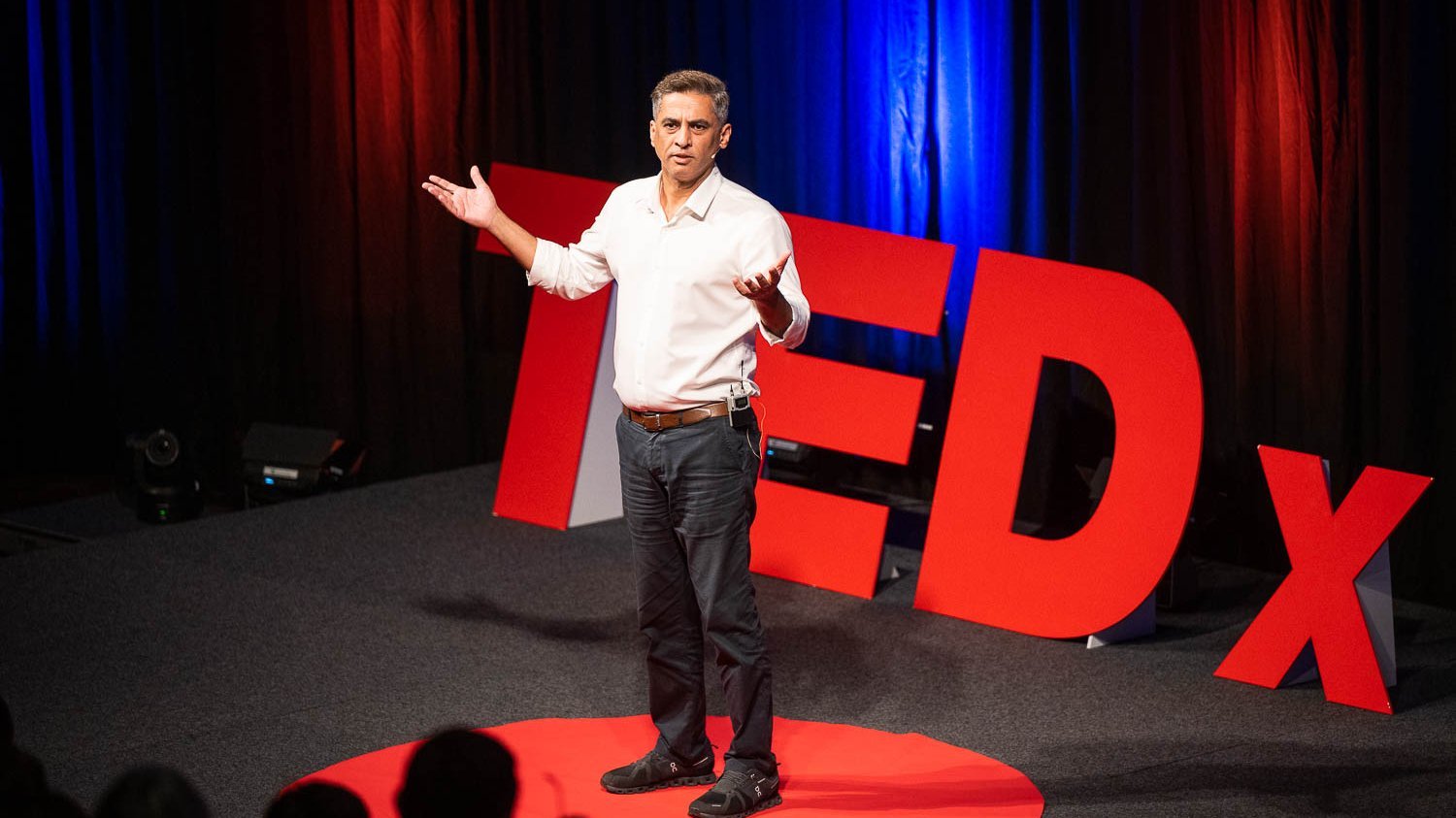
Rediscovering one’s appetite for learning
“When was the last time you learned something for the first time?” Sophie Bonnaire Lafont asked the audience at the beginning of her talk. The thoughtful silence of the audience suggested that it must have been a while ago. According to Harvard child psychologist Paul Harris, children ask about 40,000 questions between the ages of two and five, averaging out at around 100 questions per day. As they grow older the number of questions asked falls significantly. Children are naturally curious, but what stops their curiosity? In schools, there is often little space for questioning. Parents sometimes also discourage children’s curiosity, maybe because they are tired of their questions, maybe because they do not want to admit they do not have an answer. Coming from a background in human resource management, Bonnaire Lafont, who serves as Global Head of Learning and Development at Nestlé, made it clear that asking questions will usually be perceived as positive. For example, asking questions at the end of a job interview shows genuine interest in the company and willingness to learn, whereas not asking questions might come across as disinterested and lacking curiosity. Bonnaire Lafont, who appreciates Silicon Valley’s “try fast, fail fast, learn fast”-culture, encourages one to remember one’s unlimited appetite to learn as a child, and to start asking more questions. Regarding the future of education, problem-solving skills need to be even more aligned with academic thinking skills, such as curiosity, learning, and experimentation.
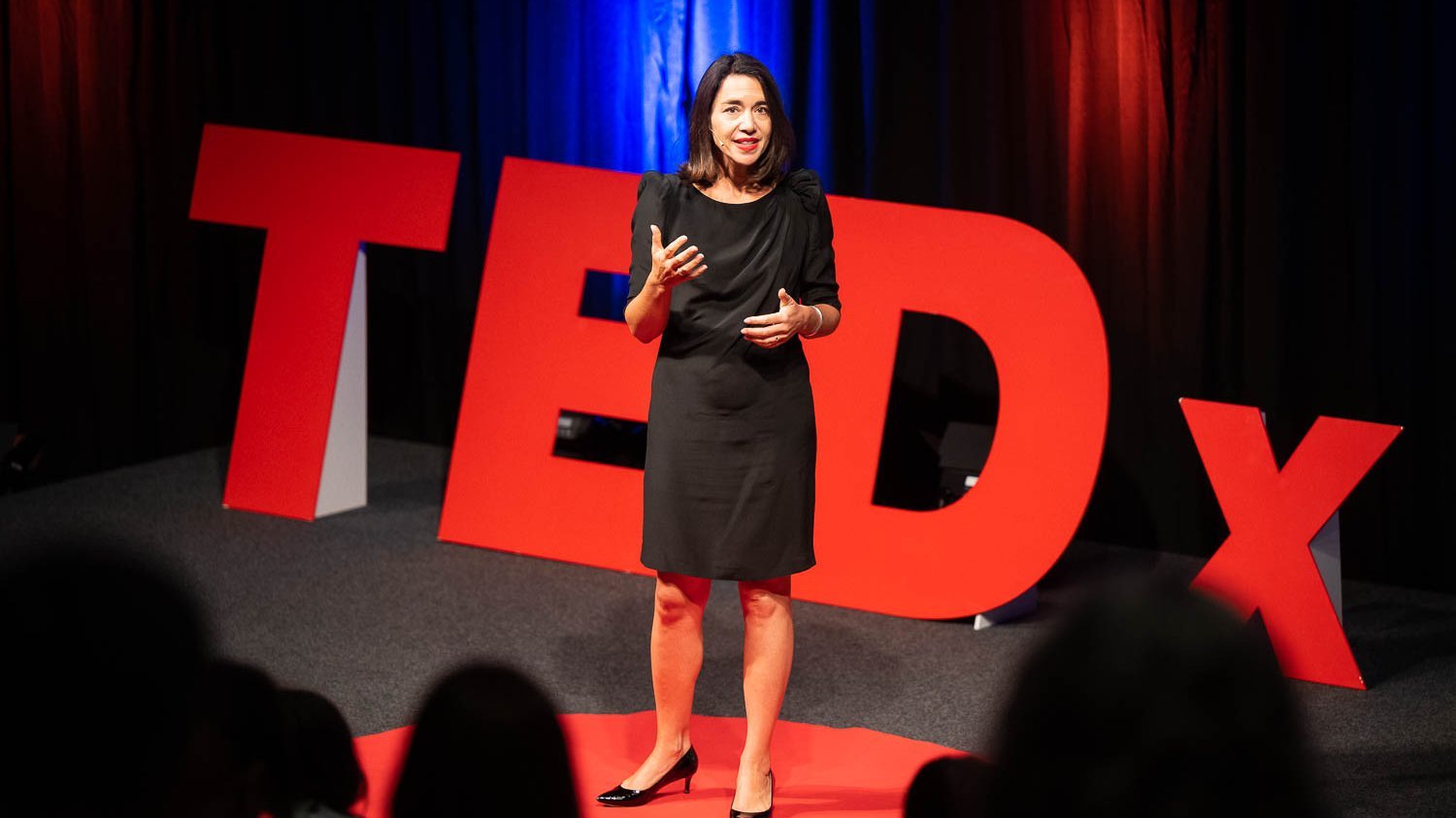
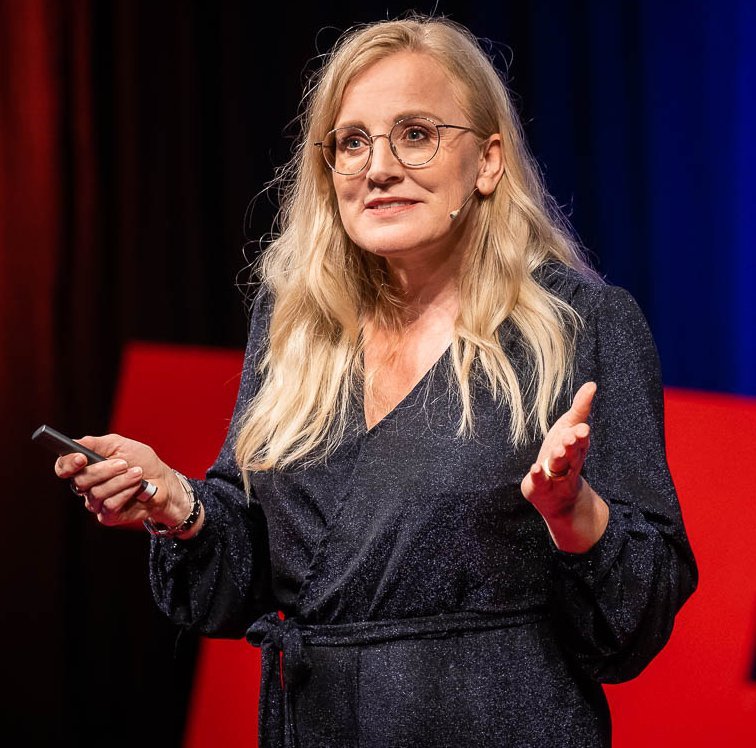
“The college essay is dead – nobody is prepared how AI will transform Academia”
“The college essay is dead – nobody is prepared how AI will transform Academia”
With this newspaper headline, Head of the Teaching Innovation Lab at HSG Jacqueline Gasser-Beck opened her talk about navigating the age of AI. Since November 2022, ChatGPT has caused a stir among educators and parents. But what is the fuzz all about? Whether you are tasked to outline a presentation, create a mindmap, or write an essay, there is an AI tool that can do it for you. However, Gasser-Beck also warned about the inherent bias of Large Language Models arising from the data used for training. For example, researchers at the University of East Anglia found that ChatGPT has a liberal political bias. It is crucial to recognize biases, and the cultivation of critical thinking and self-reflection skills is essential for the students of tomorrow who are growing up in an era where information and knowledge are increasingly commoditized. In addition, a profound understanding of technologies and human-machine interaction is imperative for the successful integration of AI and learning analytics into the learning experience.
Furthermore, the focus for the leaders of the next generations likely shifts from technical skills to soft skills, human empathy, curiosity, and emotional intelligence as “machines cannot replace the depths of human interactions and emotions” says Gasser-Beck. Regarding the college essay, it is too early to draw conclusions. Gasser-Beck argues that, at the very least, the assignments students will be tasked with in the future will change. Unique ideas, creativity, and critical reflection will be assessed rather than the structure, grammar, or formatting. Gasser-Beck appealed to the audience to not only adapt to the future but to actively shape it, and the same applies to the universities of the future.
The power of perspective
As knowledge is becoming more widely available and easily accessible through the internet, geographies where education is not easily accessible get overlooked in the transformation. Cynthia Hansen focuses her work at the Innovation Foundation on increasing the employability and access to labour markets of underserved populations. She told the story of Anna, a 24-year-old woman living with her three small children on the outskirts of Mexico City. She seeks a better future for herself and her children. She has ambition, but no money or time for training. She has skills, but these do not show up on a CV. She has information about the job market, but the information is not curated for people in her situation. To help Anna, Hansen built different solutions and tried them out with Anna. For example, digital coaching does not work for Anna due to limited internet access. However, a campaign where a woman like Anna explains the labour market to her and a text software that transforms descriptions of her daily tasks into a text about how these skills would be applied to a job sounded promising and were scaled.
While online courses are a growing part of the education sector, the example of Anna is a reminder that education needs to be further democratized. It also demonstrates the importance of lifelong learning, which will likely rise in importance compared to traditional certification-oriented education.
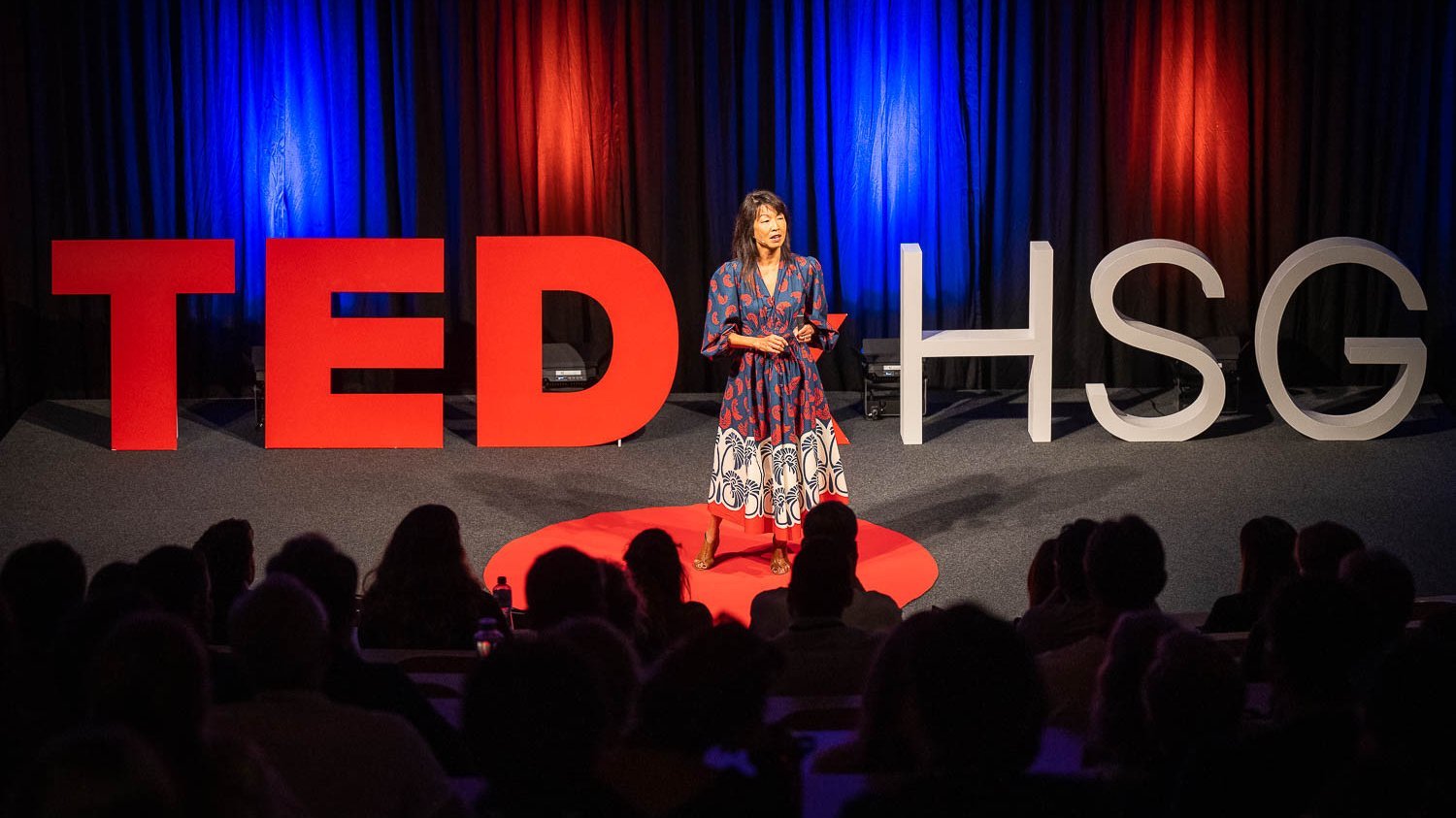
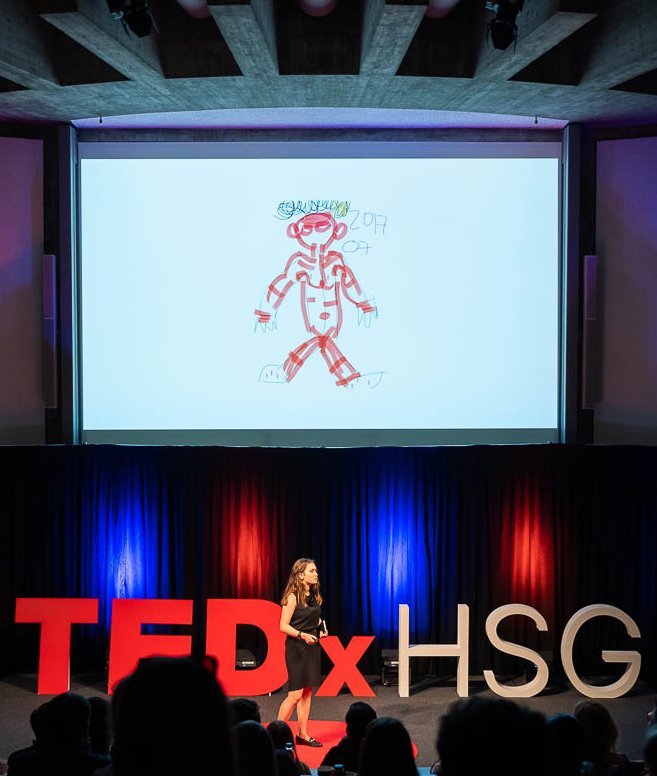
Teaching happiness
Teaching happiness
Bachelor student Lou Cadorin delivered a personal and emotional talk. Having been diagnosed with an illness on her 13th birthday, she felt hopeless and helpless during her early teenage years. Cadorin underlined the pivotal role of schools for youth mental health. For the future of learning, she envisions fostering learning beyond the classroom and diversifying education. Drawing from her own experience, she supports a curriculum that also teaches well-being and becoming happier. Her suggested solution is positive education, which transcends academia as it combines traditional education principles with the study of happiness and well-being. Through active interventions such as courses on well-being and passive interventions such as fostering a safe and inclusive school environment, students can be taught not only to thrive academically but also to cultivate essential life skills, build resilience, and develop character strength. The future of education needs to include counseling, mentoring, and peer-to-peer learning and ensure that next to technical skills, students develop adaptability, emotional intelligence, and a growth mindset
Victoria Lorenzen is a first-semester banking and finance master student at the University of St.Gallen.
Images: Universität St.Gallen / Tomek Gola
More articles from the same category
This could also be of interest to you
Discover our special topics



![[Translate to English:] Choix Goncourt de la Suisse | unisg.ch](https://www.unisg.ch/fileadmin/_processed_/b/a/csm_Choix_Concourt_de_la_Suisse_HT-Stibi-069_2110740678.jpg)


